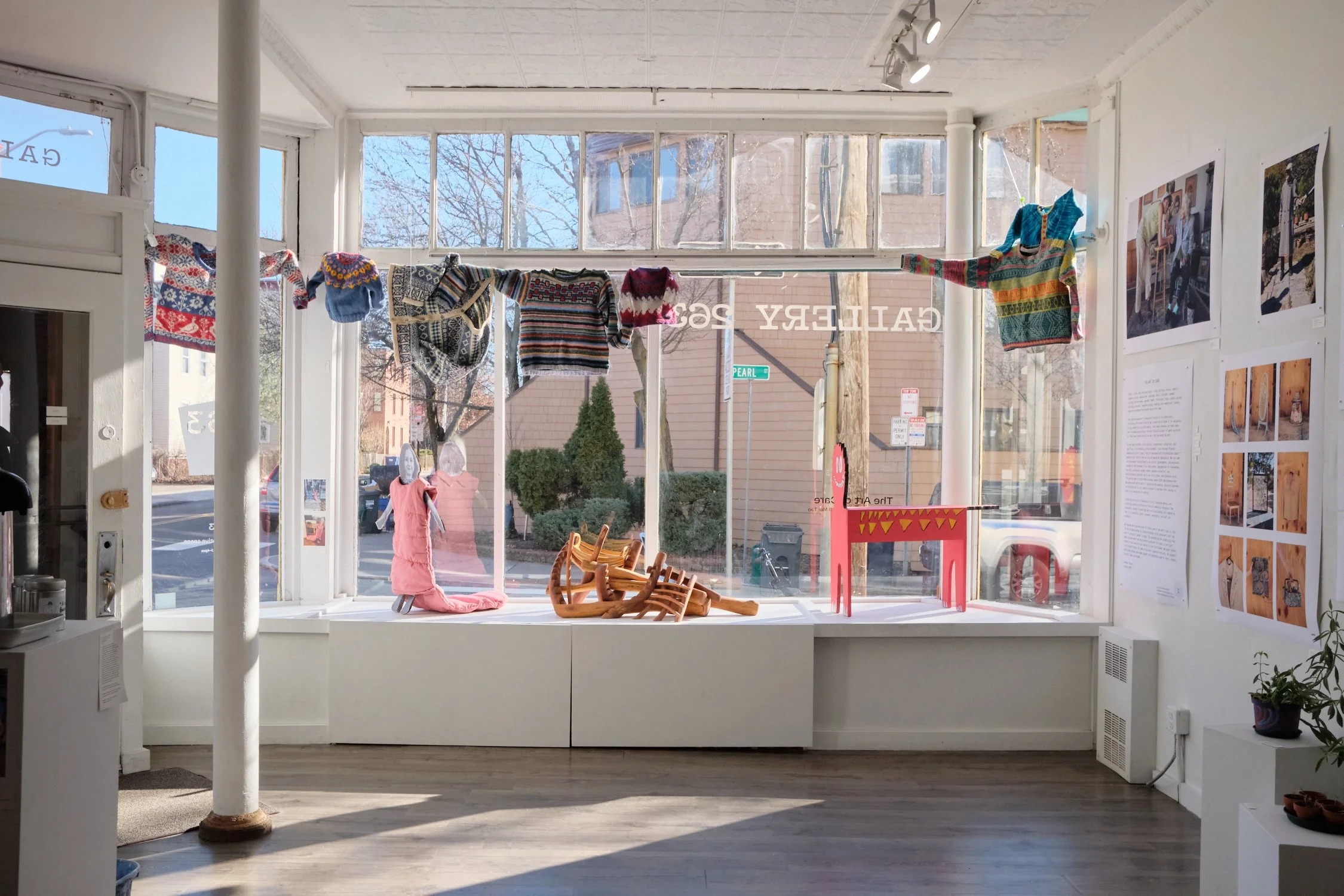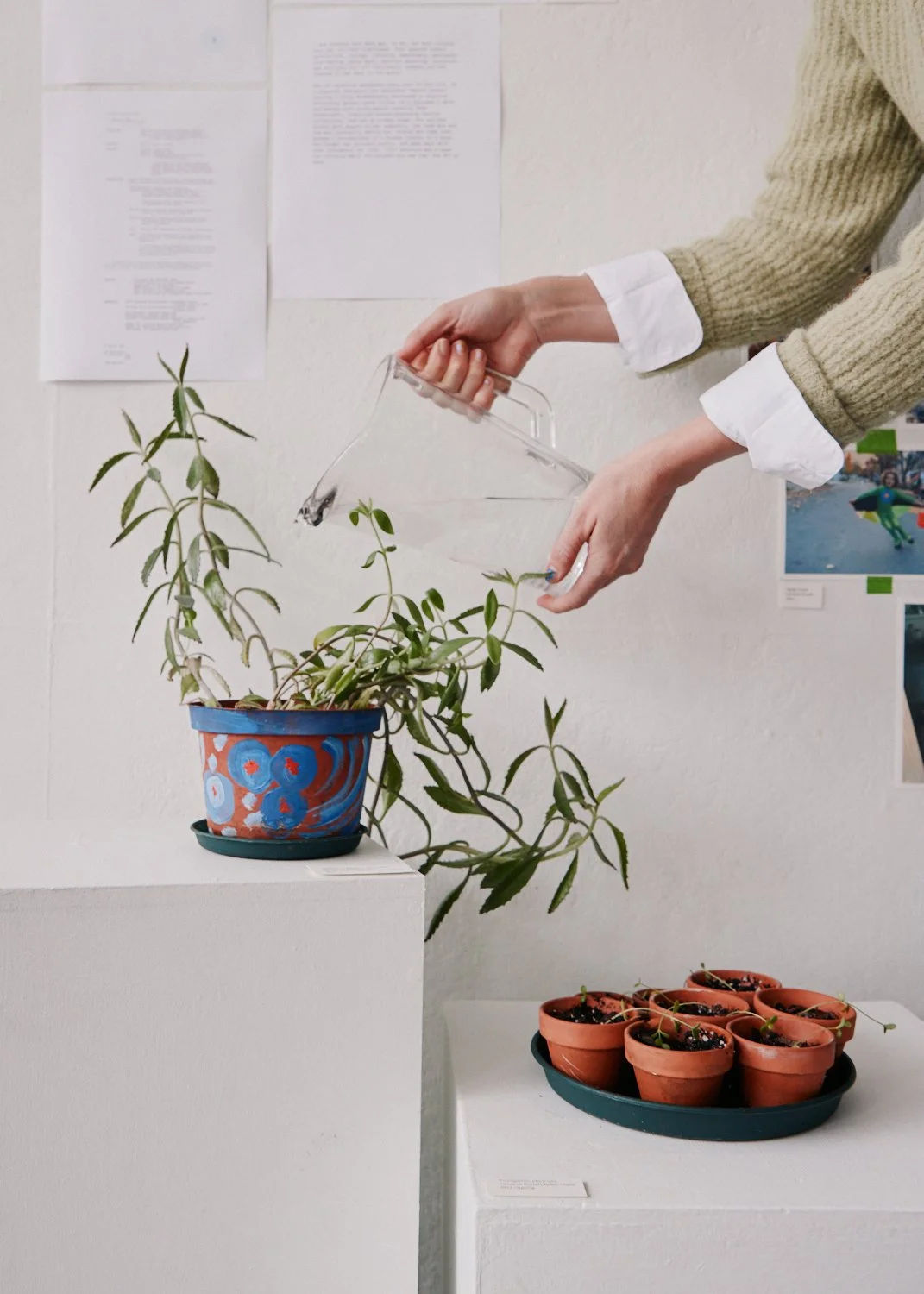Cameron Russell & Mei Tao: The Art of Care. Gallery 263. Cambridge, MA.
Marcelina Bautista, Cameron Russell & Mei Tao: El Arte de Cuidar. Proyecto Público, General Prim. Mexico City.
Quilts, clothes, hair cuts and styles, story-telling, music, meals, remedies, rituals, decorations, costumes, dolls, letters, poems, birthday cards and cakes, gardens, homes, furniture, toys, photo albums and family histories, imaginative play, mending and repair, making a way out of no way–art rarely made for an audience that extends beyond the home.
The creative expression of caregivers invites us to understand intuitively that we don’t have to sell something to know it is valuable, or buy something to live with beauty. Their work reminds us that care work includes making culture, and that culture is part of what sustains us. Their work establishes art as care, and care work as art.
In her book Care Work, on the politics, innovations, histories, and realities of the disability justice movement, Leah Lakshmi Piepzna-Samarasinha puts it simply: “Care is feminized and invisibilized labor.” Despite this, without care our survival would be impossible. We can see the divestment from care work by our culture, governments, and economic systems in the breakdown of our food systems, degradation of freshwater, top soil, ecological systems, oceans, species extinction, our mental/physical wellness, and in our child, elder, and disabled care. The seminal work of artist Mierle Ukeles, whose 1970s Maintenance Art Manifesto defined the work of “sustaining the species, survival systems, and equilibrium” as art, remains an urgent a reminder that caring is core to our expression of humanity.
Exhibiting portraits of caregivers in situ, caregiver works, and soliciting ongoing contributions from our community throughout the exhibition, serves to make care work not only visible, but remind us that it is creative, joyful, abundant, meaningful, skilled, and profound.
We know we must provide care for others even if we don’t love it, but The Art of Care wishes to transform Ukeles first assessment that the work of caring is always "a drag.” By celebrating the creativity that makes up care work, we help remind ourselves this work is not just central to our survival but central to our fulfillment. We must invest in its practitioners as some of our most important artists, as experts and wisdom holders who need support and breathing room to rest, create, inspire, teach and dream.
Combining archival images and audio, text, photographic portraits and stills, sculpture, craft, participatory elements and ongoing care work by Cameron and Mei, in collaboration with local caregiver artists, this show celebrates the creative expression of caregivers and the feminist assertion that care work is not separate from research, writing, theory, or art making but in fact central to the labor. Care work amplifies the knowledge of our bodies, ancestors, cultures, relationships, and human needs.
In a political climate and economy that seeks to replace our interdependence with division and selfishness, caregivers understand more than anyone else that we need each other. Their wisdom and artistry is a reminder that feeding, clothing, healing, teaching, and sheltering one another is a sublime expression of our humanity and maybe the only way through. The contributions they make to our economy, culture, and politics are irreplaceably important.
CALENDAR
JAN-FEB 2025. Cameron Russell & Mei Tao. The Art of Care. Gallery 263. Cambridge, MA
FEB 2025. Marcelina Bautista, Cameron Russell & Mei Tao. El Arte de Cuidar. Proyecto Público. Mexico City, MX.
JUNE 2025. Dora Rodriguez, Cameron Russell & Mei Tao. Camp Hope. Tucson, AZ.
PRESS
The Art of Care by Katie Hintz-Zambrano for Mother
Why small acts of care matter now, more than ever by Elizabeth Segran for Fast Company
Things to do around Boston this weekend and beyond, the Boston Globe
Best Photo Picks January 2025 by Elin Spring and Suzanne Révy for What Will You Remember?
A week of events in Cambridge and Somerville: Y2K to MLK and the ‘Science of Conversation’ by Monica Velgos for Cambridge Day









